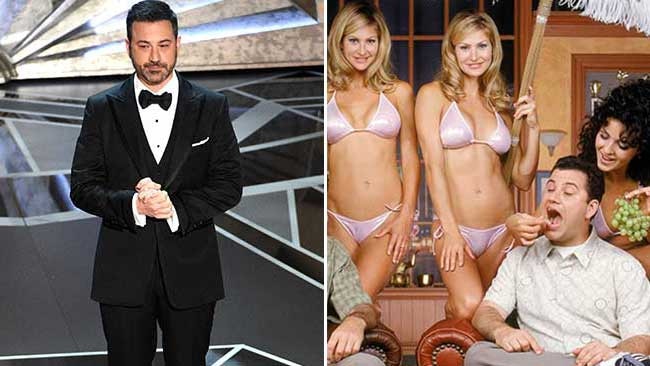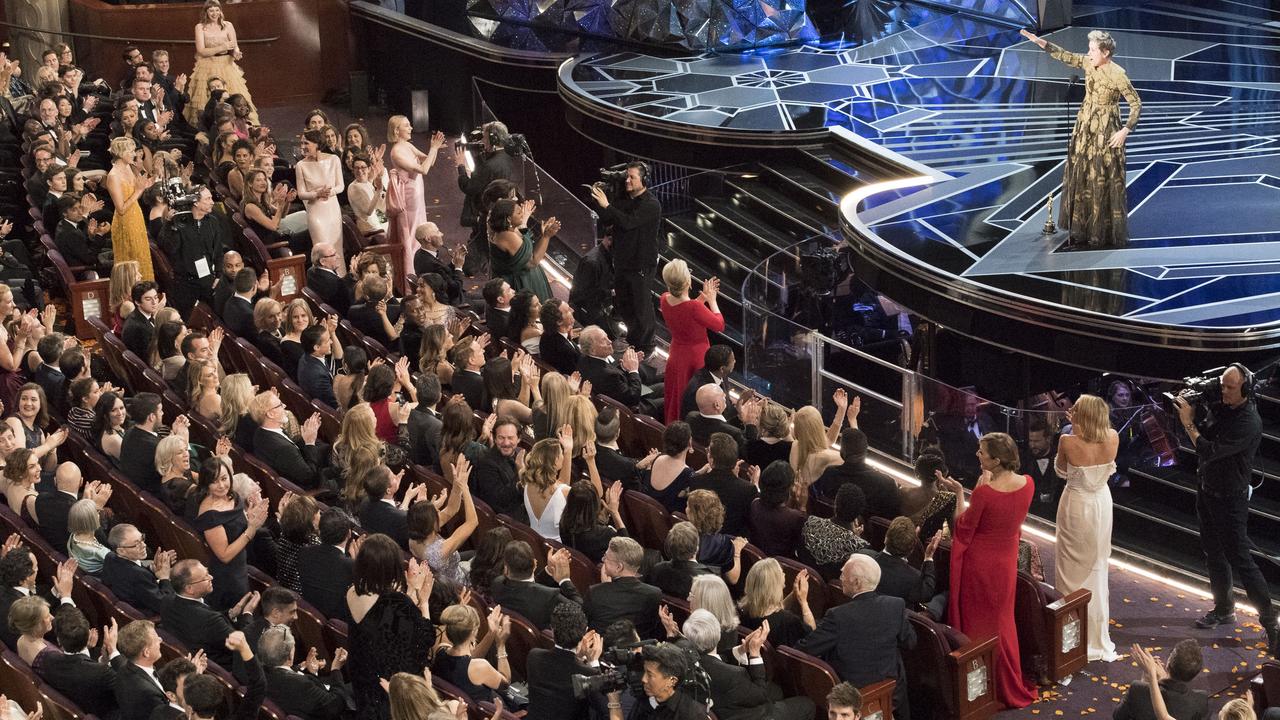Viola Davis: looking for complexity in characters
Viola Davis’s role in Fences could win her an Oscar.

“I’m trying to be the change I want to see,” says Viola Davis. Nominated for an Oscar for her new film, Fences, she’s an extraordinary actress seeking more — for herself and for others. She wants different kinds of roles and different kinds of movies, and she is prepared to be one of the people to make it happen.
She has a company, JuVee Productions, which she set up with her husband, actor Julius Tennon. They have about half a dozen projects they’re juggling right now. “And they’re all narratives about inclusion,” she says. “Not just in terms of race, but in terms of different voices.”
One of them is The Personal History of Rachel Dupree, the adaptation of a novel set in the badlands of South Dakota in the 1900s that is being made with Australian filmmaker Claire McCarthy.
“We love Claire, my husband and I,” Davis says.
McCarthy (The Waiting City, The Turning) is writer-director of the project that Davis calls “my answer to being in a John Ford movie. I’ve always pictured myself in those stories of that time in America” — except that this time the central character is not John Wayne but a pregnant African-American woman fighting to save her ranch and her children.
Davis is realistic about her situation as a producer, she is quick to add. “It’s an exciting place to be, but it’s like everything, it’s a journey. It’s not like I can just walk into an office and say, ‘I want to do this’ — that’s not it. But you can get in the room, and that’s a good thing.”
For her role in Fences, she has already won the best supporting actress gong at the Golden Globes, the Screen Actors Guild awards and the BAFTAs, and her first Oscar seems within her grasp. It is her third nomination.
Fences, directed by and starring Denzel Washington, is an adaptation of a play by African-American playwright August Wilson. Davis and Washington appeared in a 2010 production of the work, for which they both won Tonys.
Davis has appeared in four Wilson productions, three of them on Broadway. A part in a Wilson play, she recalls, “at a regional theatre in Providence made me a professional actress, I got my Equity card with Joe Turner’s Come and Gone”, the second work in Wilson’s monumental Pittsburgh Cycle of 10 plays.
“He’s had a very important part in my life, and in the life of a lot of African-American actors,” Davis says simply. “I always say if you are anywhere between seven or nine years old and your 80s, there is a role for you in any of August Wilson’s plays.”
Otherwise, she says, “you rely on someone to see you non-specifically, in an Arthur Miller play or a Shakespeare play, if you want to be an actor and you’re African American. Most theatres in America, if they’re not producing black plays, they’re producing white plays, and you hope that they’re going to see the characters differently. Otherwise you’re not going to work.”
Yet, she is at pains to add, Wilson’s plays “affect everyone. His writing affects everyone, because he writes about the human condition, and that is a universal theme.”
Fences is set in Pittsburgh in the 1950s. Washington plays Troy Maxson, a stubborn, strong-willed man who works as a garbage collector and mourns the great sporting career he feels he was denied. Davis is his accommodating wife, Rose, who at first seems to have accepted her lot until a revelation forces her to reassess her life and place in the world. When she does, openly and painfully, Davis makes it devastating. Yet Rose moves beyond this moment.
We talk about Rose’s ability to adjust, to look inside herself; it’s because of that, Davis says, she regards the character as “a liberated woman”, no matter what her situation at the end of the play.
For her, Wilson’s importance lies not only in the opportunities that his work provides but also in the characters he focuses on, the lives from which he makes art. When she won the Golden Globe, she talked about her father, “the original Troy”, who worked as a horse groomer and didn’t learn how to read until he was 15. “But do you know what,” she said, “he had a story, and it deserved to be told, and August Wilson told it.”
She has been always ready to talk about her life “growing up hungry and poor” in Rhode Island. “I happily put myself out there, it’s not like I’m a reality show,” she says. Sharing her story, she adds, is part of what she does. At school, she discovered the fulfilment of performance with a teacher who recognised her talent and encouraged her. She won a full scholarship to Rhode Island College, then was accepted into Juilliard. Three years later, she had her first Tony nomination, in Wilson’s Seven Guitars.
Her background is important, she says. “My vision for the work goes far beyond just acting. It goes to philanthropy and goes into sharing my story. There’s so many organisations that I have attached myself to, not just because of my story, but because of the stories of people that have been around me. So it helps me to feel I’m giving back something to the world that’s not just my work.”
She works with organisations that combat childhood poverty, support rape victims and work in drug rehabilitation. She’s also setting up a foundation for ”young people, students who are disadvantaged in any way and want to go into arts programs, who want to make a difference in the world, who have a vision for the art and their artistic career that they feel will shift the vision of the world in some way.”
She had that kind of support, she says, and she sees herself as that kind of artist.
Her film and TV career built slowly: supporting roles in independent movies and blockbusters alongside theatre roles and Broadway leads.
There are moments that might be regarded as breakthroughs, she says. For her it could have been Washington’s 2002 directing debut, Antwone Fisher, in which she played the title character’s mother, who relinquished him as a child. It could have been being cast in Steven Soderbergh’s Out of Sight in 1998. “And I thought I’d made it when I got Seven Guitars on Broadway.”
All these experiences and more have been important to her; you are an accumulation of your roles and your experiences as an actor, she says. “I worked with Lynn Redgrave before she passed, and one of the things she said is that when she left Los Angeles after she did her TV show House Calls (a sitcom that began in 1979), it felt like her past didn’t count for anything.
“And I thought this was a powerful statement, that you could have a body of work over 40 or 50 years, but until you do that one thing that exposes you to the masses, it’s like everything else you’ve done is nothing. And I don’t subscribe to that philosophy.”
Her first Oscar-nominated role was in Doubt, the 2008 adaptation of a John Patrick Shanley play about an investigation into a Catholic priest’s relationship with a young student. Meryl Streep plays a nun obsessively leading the case against the priest, played by Philip Seymour Hoffman; Davis is the student’s mother and brings a heartbreaking depth to a minor role, particularly in a scene in which the nun tries to draw her into the investigation.
Yes, it was a breakthrough, she says. “But by the time that came around, I’d already been in the business for like, 20 years. Everything that I did, in every Broadway house and off-Broadway theatre and regional theatre and church basement, for me it existed, you know. People saw it, and the work mattered, because all that work and the skill and the technique and all of that served me in Doubt.”
She describes how deeply she goes into the backgrounds of her characters to prepare to play them, because that’s the way the world works; in everyday life a decision that someone makes in a single moment has a long, often hidden history. Like Rose in Fences, and the telling details the play provides about who she is and what choices she has made. “All of those things are like little seeds planted, and they give you an insight into her. And then you take that, and you begin to slowly construct a human. But you do not make a judgment, that’s what you do not do. If you do that, you’ll be a walking commentary, and that’s not acting.”
Going inwards is the way Davis approaches roles, she says. “You have to take a character, and imagine — you create memories, create circumstances, that become the blueprint for why they act the way they do.”
She laughs. “That’s a lot! It’s like being the ultimate warrior psychologist. That’s why in acting they say you can never be armed with too much information about a character.”
When she won an Emmy in 2015 for best actress in a drama for How to Get Away with Murder — the first African American to win in this category — she said in her acceptance speech: “The only thing that separates women of colour from anyone else is opportunity. You cannot win an Emmy for roles that are simply not there.”
What she seeks in a role, every time, is complexity. She wants writers to see African-American characters differently.
“We as African Americans can be just as complicated as Caucasians, just as messy, just as hypocritical, just as beautiful, just as joyful — and a lot of the times we’re just not given that opportunity, for many reasons.”
Complexity can be challenging, she notes. She talks about How to Get Away with Murder, in which she plays a brilliant, manipulative lawyer and law lecturer who seems capable of almost anything.
“I was having a real mental block in a scene, and I said, she seems like she’s nurturing him, but then it seems like she doesn’t like him, and then it seems like she sort of likes him: I’m not getting it.” The idea that it could be all three “was a revelation”.
Writers, she says, are vital to change. There is only so much that an actor can bring. “Most of the material that we’re given you have to massage, you have to create the complexity. And you know what? That work is never recognised.”
She laughs. “When you’re working with material that’s not great and you’re trying to make it great, you’re trying to make your character great, nobody ever sees that. Those actors are the unsung heroes. As at matter of fact, those are the actors who should be given the awards.”



To join the conversation, please log in. Don't have an account? Register
Join the conversation, you are commenting as Logout